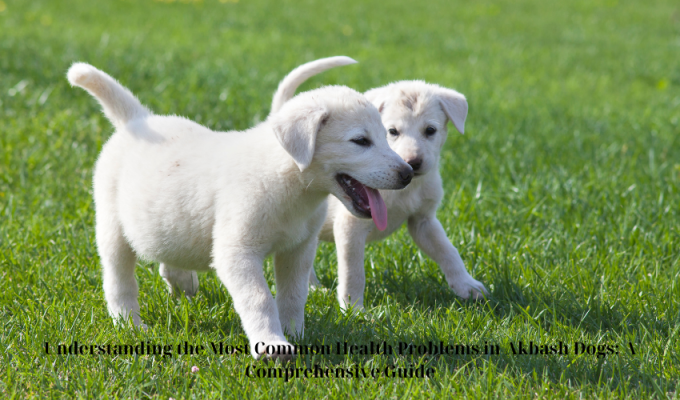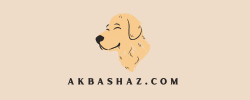Explore the common health issues prevalent in Akbash dogs with this comprehensive guide, providing insight and understanding into their most frequent health concerns.
Introduction to Akbash Dogs
The Akbash is a large and powerful breed of dog that is known for its protective nature and watchful demeanor. Originating from Turkey, this breed has been traditionally used as a livestock guardian, protecting flocks from predators. With its independent and intelligent nature, the Akbash requires a confident and experienced owner who can provide firm but kind training.
Characteristics of Akbash Dogs
– Quiet and watchful
– Protective of family and other pets
– Suspicious of strangers
– Independent thinker
– Low activity level as adults
– Requires early and frequent socialization
– Needs a large, securely fenced yard
The Akbash has a beautiful white coat that requires regular grooming and maintenance. While they are generally healthy dogs, they can be prone to certain genetic health issues, so it’s important to choose a reputable breeder and ensure proper health screenings for the parents.
Overall, the Akbash is a loyal and devoted companion for the right owner, but they require careful training, socialization, and attention to their health needs.

Common Health Issues in Akbash Dogs
The Akbash breed is generally healthy, but like all purebred dogs, they are susceptible to certain health issues. Some of the common health problems that can affect Akbash dogs include orthopedic issues such as osteochondritis dissecans and hip dysplasia. These conditions can cause pain and mobility issues for the dog and may require medical intervention. Additionally, Akbash dogs may be prone to epilepsy, which can lead to seizures and other neurological symptoms. Cardiomyopathy, an inherited heart condition, is also a concern in this breed.
Other Health Concerns
In addition to the above-mentioned health issues, Akbash dogs may also be at risk for autoimmune thyroiditis, gastric torsion (bloat), umbilical hernias, cruciate ligament injuries, and certain types of cancers such as osteosarcoma and lymphoma. These conditions can have serious implications for the health and well-being of the dog and may require ongoing medical care and management. It’s important for Akbash owners to be aware of these potential health issues and to work closely with their veterinarian to monitor their dog’s health.
It’s important to note that not all Akbash dogs will develop these health problems, and responsible breeding practices can help reduce the incidence of genetic conditions in the breed. However, prospective Akbash owners should be aware of these potential health concerns and be prepared to provide the necessary care and support for their dog’s well-being. Regular veterinary check-ups, a healthy diet, and regular exercise can all contribute to maintaining the overall health of Akbash dogs.
Musculoskeletal Disorders
Musculoskeletal disorders are common health issues that can affect the Akbash breed. These disorders can include conditions such as osteochondritis dissecans, hip dysplasia, and cruciate ligament injuries. Osteochondritis dissecans is a joint condition that can cause pain and lameness in affected dogs. Hip dysplasia is a hereditary condition that affects the hip joints and can lead to arthritis and mobility issues. Cruciate ligament injuries can occur due to trauma or degeneration of the ligaments in the knee joint.
Prevention and Management
To prevent musculoskeletal disorders in Akbash dogs, it is important to ensure that they are bred from parents with clearances for hip dysplasia and other orthopedic issues. Providing a balanced diet, regular exercise, and maintaining a healthy weight can also help to prevent these conditions. Additionally, it is important to monitor the dog’s activity levels and provide appropriate veterinary care to manage any musculoskeletal issues that may arise.
- Ensure that the Akbash is bred from parents with clearances for hip dysplasia and other orthopedic issues.
- Provide a balanced diet and regular exercise to maintain a healthy weight and prevent musculoskeletal issues.
- Monitor the dog’s activity levels and seek veterinary care if any musculoskeletal problems are observed.
Overall, proactive measures such as responsible breeding, proper nutrition, and regular veterinary care can help to prevent and manage musculoskeletal disorders in Akbash dogs.
Skin and Coat Problems
The Akbash is known for its beautiful white medium-length or long double coat, but this can also make them prone to skin and coat problems. One common issue is dermatitis, which can be caused by allergies, parasites, or bacterial or fungal infections. Symptoms may include itching, redness, flakiness, and hair loss. Regular grooming and proper hygiene can help prevent and manage these issues.
Prevention and Management
– Regular grooming: Brushing the Akbash’s coat at least once a week can help remove dead hair and distribute natural oils, keeping the skin and coat healthy.
– Proper hygiene: Keeping the Akbash clean and dry, especially in areas prone to moisture and friction, can help prevent skin infections and irritations.
– Balanced diet: Providing a nutritious and balanced diet can support the overall health of the Akbash, including their skin and coat.
– Veterinary care: Regular check-ups with a veterinarian can help identify and address any skin and coat issues early on.
It’s important for Akbash owners to be proactive in monitoring their dog’s skin and coat health and seek veterinary advice if any concerns arise.
Gastrointestinal Health Concerns
The Akbash breed is prone to certain gastrointestinal health concerns that owners should be aware of. One common issue is gastric torsion, also known as bloat, which is a life-threatening condition where the stomach fills with gas and twists on itself. This can occur suddenly and requires immediate veterinary attention. Symptoms of bloat include restlessness, pacing, drooling, and an enlarged abdomen. Owners should be vigilant and seek prompt medical care if they suspect their Akbash is experiencing bloat.
Preventive Measures
To help prevent gastrointestinal health concerns, it’s important to feed the Akbash a high-quality diet and avoid excessive exercise immediately before or after meals, as this can contribute to bloat. Additionally, providing smaller, more frequent meals rather than one large meal a day can help reduce the risk of gastric torsion. Owners should also be mindful of their Akbash’s eating habits and monitor for any signs of discomfort or bloating after meals.
By being proactive and attentive to their Akbash’s gastrointestinal health, owners can help mitigate the risk of common issues and ensure their pet’s overall well-being. Regular veterinary check-ups and a balanced diet are essential components of maintaining good gastrointestinal health for the Akbash breed.
Heart and Respiratory Conditions
The Akbash breed may be prone to certain heart and respiratory conditions that can affect their overall health and well-being. Some of the common heart conditions that may affect Akbash dogs include cardiomyopathy, a disease that affects the heart muscle, and can lead to symptoms such as weakness, fainting, and difficulty breathing. Respiratory conditions such as bronchitis or pneumonia can also impact the Akbash breed, causing symptoms such as coughing, wheezing, and difficulty breathing. It is important for Akbash owners to be aware of these potential health issues and to seek veterinary care if they notice any concerning symptoms in their pets.
Signs and Symptoms
– Weakness or lethargy
– Fainting or collapsing
– Difficulty breathing
– Coughing or wheezing
– Rapid or irregular heart rate
– Blue-tinged gums or tongue
It is important for Akbash owners to be familiar with the signs and symptoms of heart and respiratory conditions in their pets. Early detection and treatment can make a significant difference in managing these health issues and improving the quality of life for Akbash dogs. Regular veterinary check-ups and prompt attention to any concerning symptoms are essential for maintaining the health and well-being of these loyal and protective animals.
Conclusion and Care Recommendations
The Akbash is a loyal and protective breed that requires a knowledgeable and experienced owner. It is important to provide early and consistent training, socialization, and proper care to ensure the well-being of the Akbash. Potential owners should be prepared for the breed’s protective nature, grooming needs, and potential health concerns. It is crucial to find a reputable breeder and consider adopting an adult dog from a shelter or rescue group. Additionally, investing in pet insurance can help cover potential health expenses for the Akbash.
Key Care Recommendations:
- Provide early and consistent training and socialization
- Find a reputable breeder or consider adopting from a shelter or rescue group
- Invest in pet insurance to cover potential health expenses
- Regular grooming and veterinary check-ups to monitor and address potential health concerns
- Create a safe and secure environment, including a large yard with a solid fence
In conclusion, the Akbash dog breed is prone to certain health issues such as hip dysplasia, bloat, and skin problems. It is important for owners to be aware of these common health problems and to provide proper care and attention to ensure the overall well-being of their Akbash dog. Regular veterinary check-ups and a healthy lifestyle can help prevent and manage these health issues.

